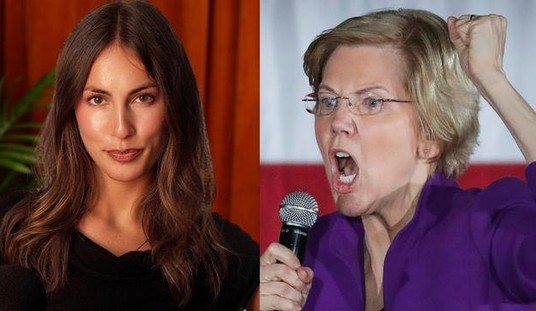Let’s get one thing clear about the Prince Harry “Paki” row: this was not a case of “political correctness gone mad,” a phenomenon that, Lord knows, I’ve railed against a few times here at PJM.
The word “Paki” is extremely offensive to British Asians, a fact which has come as a surprise to many Americans. In his piece on the subject for PJM, Robert Stacy McCain admitted that he hadn’t realized the term was viewed as hateful, and many commenters wondered what the fuss was about. This is understandable, as in the U.S. the word “Paki” is used simply as a contraction of Pakistani, with no malice attached. (A few years back, not realizing this was the case, I was surprised when reading Mark Bowden’s Black Hawk Down to read about “Pak” soldiers attached to the UN helping to rescue the besieged American troops in Mogadishu).
In the UK however — despite the protestations of some that “Paki” is no more than mildly disparaging shorthand, just as “Jock” is used to refer to Scottish people or “Taffy” to refer to the Welsh — the word is loaded with racial significance and is analogous to the N-word in the U.S. As Murad Ahmed writes in the Times, the word was coined as a catch-all term of abuse for Asian immigrants and harks back to a period when violent attacks on both Asians and blacks were commonplace. While a generation of British children innocently used the term “Paki shop” to refer to small, open-all-hours grocery stores run by Asians, most of us grew out of the habit.
So yes, it was offensive; and yes, Harry was stupid to use the word. But in mitigation it should be remembered that the incident occurred three years ago, when Harry was 21. He made the remarks out of earshot of his Asian colleague and clearly never expected them to be heard outside his circle of close colleagues. He was clowning around and probably trying to overcompensate for his privileged status by trying to act like “one of the boys.” How many of us can say we haven’t been guilty of similar indiscretions, particularly in our youth? It should also be remembered that this is a young man who has fought for his country in Afghanistan and done good work for charity, including setting up a fund to help African AIDS orphans — hardly the actions of a racist.
Members of the royal family tread a fine line in terms of how they’re portrayed by the media — and how they’re viewed by the public. If they err on the side of discretion they’re maligned as “aloof” and “out of touch” with their subjects. Recall the outrage — some of it genuine, much of it stirred up by the press — when the queen was seen as failing to display sufficient anguish over the death of Princess Diana. But if a royal tries too hard to be “ordinary” they risk criticism for being insincere and patronizing, or ridicule for their lack of familiarity with the everyday lives of us common folk — this while being pursued by a media eagerly waiting for them to screw up.
Harry certainly isn’t the first royal to make unfortunate remarks about people of other races — his grandfather, Prince Philip, has practically made a career out of racially-themed gaffes. On a state visit to China in 1986, he told a group of British students, “If you stay here much longer, you’ll all be slitty-eyed”; in 1998, he enquired of a British student who had been trekking in Papua New Guinea, “You managed not to get eaten then?”; and in 1999, touring a high-tech factory in Scotland, he joked that an old-fashioned fuse box looked like it had been “put in by an Indian.” (You’ll find a comprehensive list of Philipisms here .)
However, the Prince Philip’s slips of the tongue generally cause no more than fleeting embarrassment for the royals — he lacks diplomatic skills at the best of times, and allowances are made for his age and for the fact that he comes from a generation unaccustomed to negotiating the minefields of multiculturalism. No such allowances should be made for Harry, though. He’s been (it’s hoped) well-brought-up and well-educated, and he’s certainly well-traveled. He’s supposed to be an ambassador for his country, and he should know better.
That said, the outcry over his remarks has been over the top. This is in part because the British media, like its U.S. counterparts, is increasingly in the business of entertainment rather than news gathering. The royal family are celebrities, and Britons bow to no one in their obsession with the foibles of the rich and famous. More disturbingly, it’s the media, along with assorted minority and special interest groups and human rights organizations, who decide precisely how offensive a particular instance of behavior is, and to whom.
Back in 2005, Harry got into into trouble for dressing up as a German soldier, complete with swastika armband, for a fancy dress party. There was an outcry, but it wasn’t on the scale of the controversy that has raged in recent days, because the hurt feelings of British Asians trump the hurt feelings of British war veterans and Holocaust survivors. And when Harry was pictured wearing a Che Guevara T-shirt a couple of years ago there was barely a murmur outside of a few conservative blogs. Guevara was responsible for the murder, torture, and imprisonment of thousands of innocent Cubans, but the left dominates the media and runs the grievance industry, and it decides which mass-murderers will be reviled and which will be hero-worshipped.
It’s also worth noting that some of the self-appointed spokesmen who lined up to lambaste Harry for his remarks are throwing stones from inside the glass houses of extremism. The BBC’s round up of reactions to the prince’s remarks, for example, includes quotes from the musician and “activist” Aki Nawas, who called for Harry to be thrown out of the army. This is the same Aki Nawas who, a couple of years back, released an album glorifying suicide bombers (the lyrics to one song practically constitute a bomb-making manual), praising Osama bin Laden (he also likens the al-Qaeda leader to Guevara, which actually makes perfect sense to me but upset some commentators on the left), and attacking the “immorality” of the West.
But taking the biscuit for manufactured outrage is Mohammed Shafiq, spokesman for the Ramadan Foundation, which purports to represent Britain’s young Muslims. Shafiq likes to portray his organization as the “reasonable” face of Islam in the UK, but the mask has slipped on several occasions. He attacked Tony Blair for suggesting that some British Muslims should do more to integrate and the Pope for quoting a 14th-century emperor who was critical of Islam. He also criticized the decision to award a knighthood to Satanic Verses author Salman Rushdie, on the grounds that Rushdie’s exercising of his right to free speech was offensive to Muslims, and he has condemned the publication of The Jewel of Medina, a “racy” book about the Prophet Mohammed by U.S. author Sherry Jones (I wrote about that row here). Before the Harry story broke Shafiq was keeping busy accusing the Israelis of behaving like Nazis in their assault on Hamas terrorists in Gaza.
The voice of reason indeed. Yet Shafiq has been omnipresent in the British media in recent days, describing Harry’s “Paki” remark as “sickening.” In some interviews, including the BBC piece linked above, he went further, calling Harry a “thug” — and now, irony of ironies, he’s been forced to apologize.
Like Harry, he’s finding out that when you open your mouth without first engaging your brain, it’s all too easy to cause offense.









Join the conversation as a VIP Member